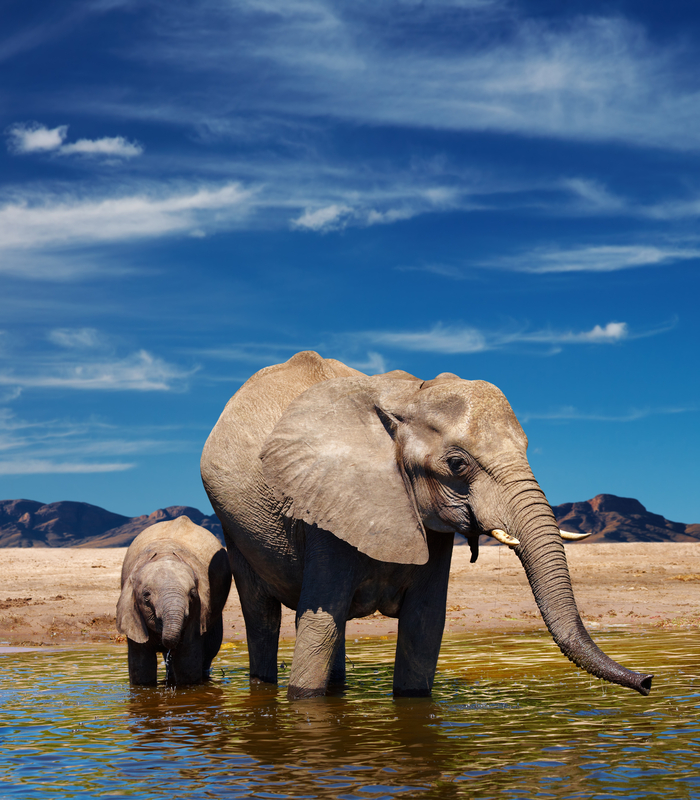FoA to DOI: End the Import of Elephant Skins

Friends of Animals has petitioned the U.S. Fish and Wildlife Service to restrict the import of elephant skins that is contributing to the decimation of the species.
The elephant population has declined by 90 percent in the past century with just 350,000 remaining in Africa and less than 50,000 in Asia. The declines have prompted Asian elephants to be listed as endangered and African elephants as threatened under the Endangered Species Act.
Despite these listings, the U.S. is a major importer of elephant parts and hides, exceeding other countries. More than 2,000 whole African elephant skins were imported to the U.S. from Zimbabweand South Africa in 2016, up from 275 two years ago, as well as thousands of smaller skins pieces and finished leather goods from other African nations.
The skins are being used to make handbags, boots, shoes, totes, belts, computer cases and even gun holders and sold by exotic skin retailers such as Roje Exotics, The Leather Guy and Vintage Skins and online at sites like Etsy. Trophy hunters from the U.S. are also allowed to kill two African elephants per year and obtain permits to import their body parts including skins.
The rise in the trade of elephant skins comes at a time when an increasing number of countries around the world are closing their ivory markets. The U.S. banned the import of most ivory into the U.S. in 2016. Yet as some ivory markets wind down, elephant skins have become a hot commodity.
FWS maintains that the skin trade doesn’t pose a threat to the viability of the elephant species. But the skin trade is boosting not only legal but illegal trade as poachers are killing elephants indiscriminately, targeting females and calves and tusk-less males as well. ESA enables FWS to issue special rules for threatened species. FoA said the agency’s is falling short on its commitment to protect the elephant population.
“Most of our regulations surrounding elephants are focused on ivory. But now there is a growing demand for elephant skin that could also be driving their extinction,” said Jennifer Best, assistant director of FoA’s Wildlife Law Program. “If you want to protect elephants you need to protect all parts of the elephants.”
Between 2003 and 2012, the U.S. imported 57,844 small leather products and 33,184 elephant skins, representing 44 percent of the global total.
“There’s so much to admire about elephants,” FoA President Priscilla Feral said. “But the U.S.’s haphazard policies have put elephant survival in peril by allowing the obscenity of their skins to be used for somebody’s designer loafers. FoA is committed to assuring a future for these powerful, adaptable land mammals so that the commercial threat forever ends.”
Friends of Animals, an international animal protection organization founded in N.Y. in 1957 and headquartered in Darien, CT, advocates for the rights of free-living and domestic animals. FoA is proud to be a woman-founded and -led organization for more than 60 years.
SOURCE Friends of Animals







